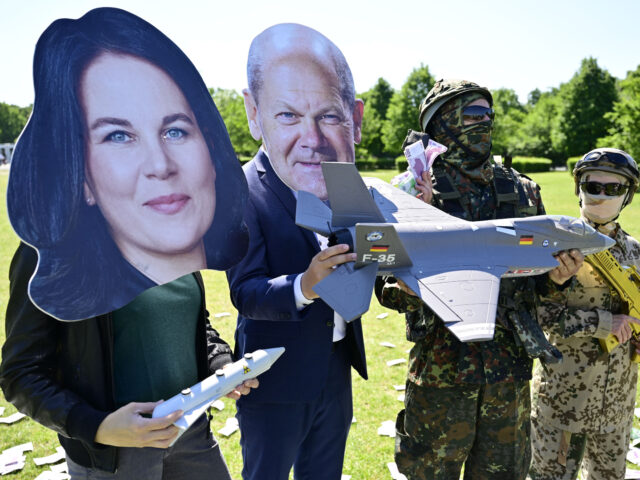The German government will support the Ukrainian war effort for “as long as they need us” and no matter what public opinion of voters is on the issue, Germany’s foreign minister said on Wednesday.
Appearing at the Forum 2000 conference in Prague, Annalena Baerbock of the Green Party, Minister of Foreign Affairs in the ‘traffic light’ coalition government of Olaf Scholz, said that Germany will press on with supporting Ukraine’s struggle supporting sanctions against Russia for years if necessary.
“We stand with Ukraine as long as they need us,” she said, adding that this promise to the Ukrainian people must be fulfilled “no matter what my German voter thinks.”
The Green Party politician said that if the public doesn’t like the direction the government has taken, they can express their displeasure at the next election.
“Yes, everyone wishes from us that tomorrow the war stops, but in case it doesn’t stop, I will also be there in two years time,” Baerbock said, adding that European sanctions packages against Russia should be crafted so that they could be in effect for years.
“We are facing a winter where we as politicians will be challenged, people will go on the street and say ‘we can’t pay our energy prices’ and I will say ‘yes, I know, so we help you with social measures,’ but I don’t want to say then we will stop the sanctions against Russia.”
The German people have already been paying a heavy price for their government’s standoff with Russia, in large part due to the poor planning during the Angela Merkel era, when the European Union’s economic powerhouse became dependent on Russian natural gas while so-called green alternatives failed to meet expectations.
As a result, Germany has seen its electricity prices climb by 1,000 per cent over last year, from around 85 euros per megawatt-hour (MWh) to 850 last week. In addition to soaring energy costs, the country has been facing an inflationary spiral as well, heavily impacting the cost of living for average citizens.
In August, inflation in Germany overall hit a near 70-year-high of 7.9 per cent. Some individual sectors have been harder hit, such as the prices of groceries, which saw inflation climb from 12 per cent in June to 16.6 per cent in August.
To make matters worse, in contrast to Baerbock’s alleged support for “social measures” to ease the pain for Germans, the government rescinded the three-month fuel discount this week, resulting in prices at the pump jumping by 48 per cent in some locations compared to just days ago.
The economic crisis will likely continue to grow throughout the winter months when demand for gas to heat people’s homes rises. In August, the head of the German savings bank Sparkasse, Helmut Schleweis, warned that as much as 60 per cent of the population will either be driven into living paycheque-to-paycheque or being forced to eat into their savings to meet their basic needs.
Despite the dire outlook, Baerbock is not alone among European leaders calling on their citizens to sacrifice for Ukraine. Last month, French president Emmanuel Macron said that the public should get used to the idea of an “end of abundance” and outgoing British Prime Minister Boris Johnson said that it is “absolutely vital” for Britons to accept higher energy bills and see their tax money shipped to Ukraine to defeat the “evils of Vladimir Putin”.
Follow Kurt Zindulka on Twitter here @KurtZindulka

COMMENTS
Please let us know if you're having issues with commenting.